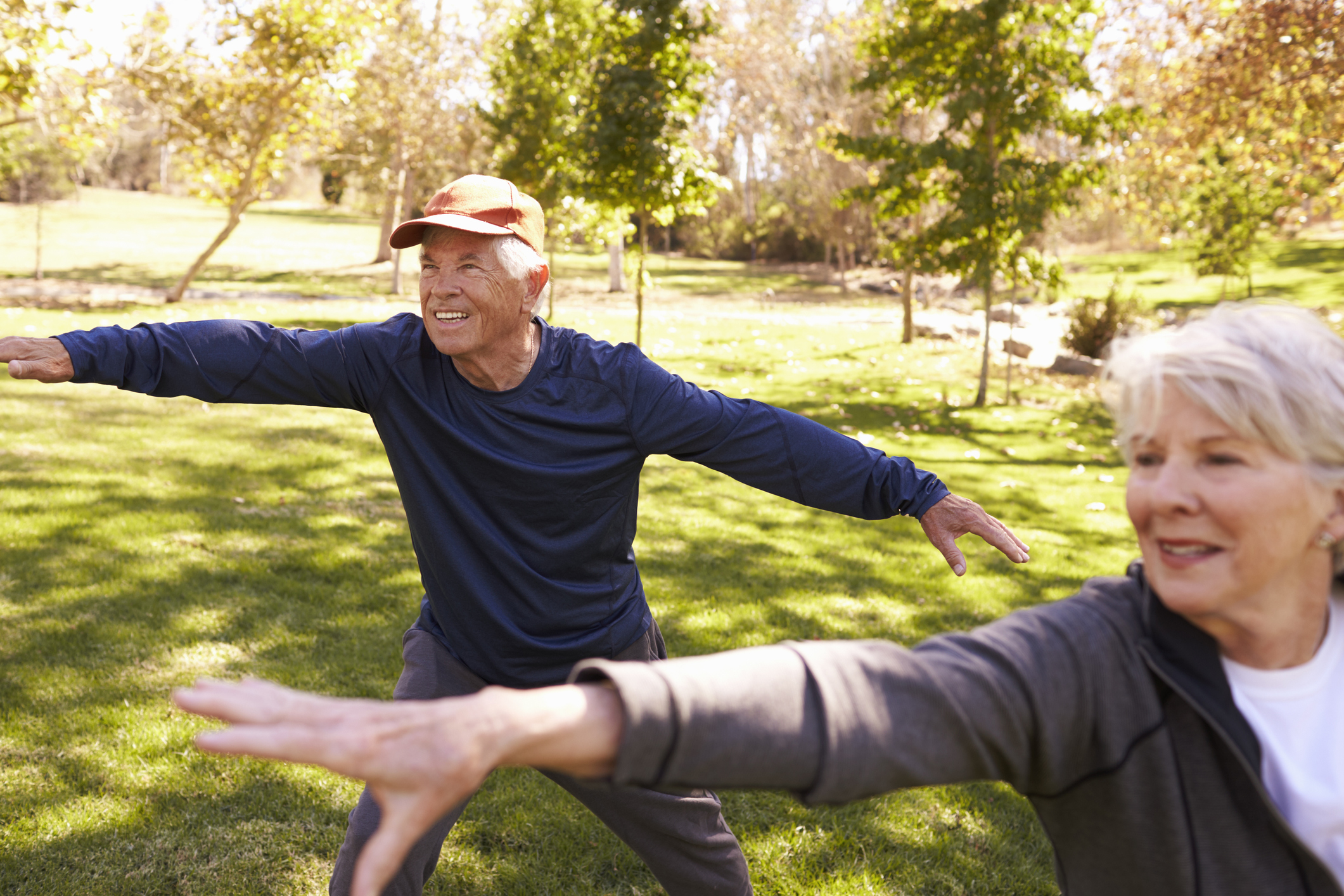Staying active and socially engaged in older age is as important in maintaining physical health as it is in preventing cognitive decline and new research has found that activities such as dancing or Tai Chi, that engaged both the mind and the body, benefit brain function.
A recent large-scale Chinese study of healthy older adults and those with mild cognitive impairment found that activities that require both the mind and the body offered the most improvement in cognitive flexibility, working memory, verbal fluency and improved global cognition. Whether it’s anticipating the next move and staying with the music in a ballroom dancing class or shifting attention from one Tai Chi pose to the next, regular mind-body activity can help older adults preserve and even improve cognitive health.
It is recommended that older adults get between 60 and 120 minutes each week of moderate intensity mind-body exercise. This could include yoga, Pilates and various types of dance. Tai Chi and yoga also help seniors reduce their risk for falls by improving balance and core strength.
Older adults should aim to get at least 150 minutes of exercise per week but this can be broken up into smaller sessions; a little exercise is better than none at all, with duration and intensity increasing gradually over time. By mixing moderate aerobic activity like walking, cycling or swimming with strength training, stretching and balance exercises, older adults can improve cardiovascular health, help prevent falls and preserve cognitive function. Read more from The Oldish about the specific benefits of Tai Chi here.
Keep Your Brain Young With These Lifestyle Habits
- Stimulate your brain with word puzzles, math games, drawing, painting or other crafts.
- Get regular exercise to lower blood pressure, improve cholesterol, balance blood sugar and reduce stress.
- Eat a healthy Mediterranean style diet
- Control blood pressure, blood sugar and cholesterol
- Avoid tobacco
- Limit alcohol
- Get enough sleep
- Seek treatment for depression or anxiety
- Protect your head
- Treat hearing loss
- Stay socially engaged
Source: Harvard Health






Add Your Voice
0 Comments
Join the Discussion